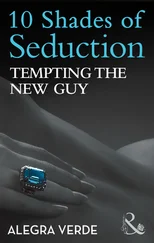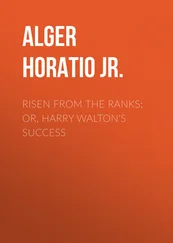Horatio Alger - Chester Rand; or, The New Path to Fortune
Здесь есть возможность читать онлайн «Horatio Alger - Chester Rand; or, The New Path to Fortune» — ознакомительный отрывок электронной книги совершенно бесплатно, а после прочтения отрывка купить полную версию. В некоторых случаях можно слушать аудио, скачать через торрент в формате fb2 и присутствует краткое содержание. Жанр: Детские приключения, literature_19, foreign_antique, foreign_prose, foreign_children, на английском языке. Описание произведения, (предисловие) а так же отзывы посетителей доступны на портале библиотеки ЛибКат.
- Название:Chester Rand; or, The New Path to Fortune
- Автор:
- Жанр:
- Год:неизвестен
- ISBN:нет данных
- Рейтинг книги:3 / 5. Голосов: 1
-
Избранное:Добавить в избранное
- Отзывы:
-
Ваша оценка:
- 60
- 1
- 2
- 3
- 4
- 5
Chester Rand; or, The New Path to Fortune: краткое содержание, описание и аннотация
Предлагаем к чтению аннотацию, описание, краткое содержание или предисловие (зависит от того, что написал сам автор книги «Chester Rand; or, The New Path to Fortune»). Если вы не нашли необходимую информацию о книге — напишите в комментариях, мы постараемся отыскать её.
Chester Rand; or, The New Path to Fortune — читать онлайн ознакомительный отрывок
Ниже представлен текст книги, разбитый по страницам. Система сохранения места последней прочитанной страницы, позволяет с удобством читать онлайн бесплатно книгу «Chester Rand; or, The New Path to Fortune», без необходимости каждый раз заново искать на чём Вы остановились. Поставьте закладку, и сможете в любой момент перейти на страницу, на которой закончили чтение.
Интервал:
Закладка:
"I shall be very happy to go with Mr. Conrad," said Chester, politely.
"And I shall be very glad to have you," said the young man, with a pleasant smile.
"Come back to supper, Chester," said the minister; "that is, if your mother can spare you."
"Thank you, sir. I suppose you will be able to carry back the empty basket, Abel," added Chester, as his successor emerged from the side door, relieved of his burden.
"I guess so," answered Abel, with a grin.
"I was never in Wyncombe before," began Mr. Conrad, "though I am a second cousin of your minister, Mr. Morris. I have to go away to-morrow morning, and wish to see a little of the town while I am here."
"Where do you live, Mr. Conrad?"
"In the city of New York."
"Are you a minister, too?"
"Oh, no!" laughed the young man. "I am in a very different business. I am an artist—in a small way. I make sketches for books and magazines."
"And does that pay?"
"Fairly well. I earn a comfortable living."
"I didn't know one could get money for making pictures. I like to draw, myself."
"I will see what you can do this evening; that is, if you accept my cousin's invitation."
Before the walk was over Chester had become much interested in his new friend. He listened eagerly to his stories of the great city, and felt that life must be much better worth living there than in Wyncombe.
CHAPTER III.
A NOTEWORTHY EVENING
Chester enjoyed his supper. Mr. Morris, though a minister, had none of the starched dignity that many of his profession think it necessary to assume. He was kindly and genial, with a pleasant humor that made him agreeable company for the young as well as the old. Mr. Conrad spoke much of New York and his experiences there, and Chester listened to him eagerly.
"You have never been to New York, Chester?" said the young artist.
"No, sir, but I have read about it—and dreamed about it. Sometime I hope to go there."
"I think that is the dream of every country boy. Well, it is the country boys that make the most successful men."
"How do you account for that, Herbert?" asked the minister.
"Generally they have been brought up to work, and work more earnestly than the city boys."
When the supper table was cleared, Mr. Conrad took from his valise two or three of the latest issues of Puck , Judge and Life . He handed them to Chester, who looked over them eagerly.
"Do you ever contribute to these papers, Mr. Conrad?" he asked.
"Yes; here is a sketch in Judge , and another in Life , which I furnished."
"And do you get good pay for them?"
"I received ten dollars for each."
Chester's eyes opened with surprise.
"Why," he said, "they are small. It couldn't have taken you long to draw them."
"Probably half an hour for each one."
"And you received ten dollars each?"
"Yes, but don't gauge such work by the time it takes. It is the idea that is of value. The execution is a minor matter."
Chester looked thoughtful.
"I should like to be an artist," he said, after a pause.
"Won't you give me a specimen of your work? You have seen mine."
"I have not done any comic work, but I think I could."
"Here is a piece of drawing paper. Now, let me see what you can do."
Chester leaned his head on his hand and began to think. He was in search of an idea. The young artist watched him with interest. At last his face brightened up. He seized the pencil, and began to draw rapidly. In twenty minutes he handed the paper to Mr. Conrad.
The latter looked at it in amazement.
"Why, you are an artist," he said. "I had no idea you were capable of such work."
"I am glad you like it," said Chester, much pleased.
"How long have you been drawing?"
"Ever since I can remember. I used to make pictures in school on my slate. Some of them got me into trouble with the teacher."
"I can imagine it, if you caricatured him. Did you ever take lessons?"
"No; there was no one in Wyncombe to teach me. But I got hold of a drawing book once, and that helped me."
"Do you know what I am going to do with this sketch of yours?"
Chester looked an inquiry.
"I will take it to New York with me, and see if I can dispose of it."
"I am afraid it won't be of much use, Mr. Conrad. I am only a boy."
"If a sketch is good, it doesn't matter how old or young an artist is."
"I should like very much to get something for it. Even fifty cents would be acceptable."
"You hold your talent cheap, Chester," said Mr. Conrad, with a smile. "I shall certainly ask more than that for it, as I don't approve of cheapening artistic labor."
The rest of the evening passed pleasantly.
When Chester rose to go, Mr. Conrad said:
"Take these papers, Chester. You can study them at your leisure, and if any happy thoughts or brilliant ideas come to you, dash them off and send them to me. I might do something with them."
"Thank you, sir. What is your address?"
"Number one ninety-nine West Thirty-fourth Street. Well, good-by. I am glad to have met you. Sometime you may be an artist."
Chester flushed with pride, and a new hope rose in his breast. He had always enjoyed drawing, but no one had ever encouraged him in it. Even his mother thought of it only as a pleasant diversion for him. As to its bringing him in money, the idea had never occurred to him.
It seemed wonderful, indeed, that a little sketch, the work of half an hour, should bring ten dollars. Why compare with this the hours of toil in a grocery store—seventy, at least—which had been necessary to earn the small sum of three dollars. For the first time Chester began to understand the difference between manual and intelligent labor.
It was ten o'clock when Chester left the minister's house—a late hour in Wyncombe—and he had nearly reached his own modest home before he met anyone. Then he overtook a man of perhaps thirty, thinly clad and shivering in the bitter, wintry wind. He was a stranger, evidently, for Chester knew everyone in the village, and he was tempted to look back. The young man, encouraged perhaps by this evidence of interest, spoke, hurriedly:
"Do you know," he asked, "where I can get a bed for the night?"
"Mr. Tripp has a few rooms that he lets to strangers. He is the storekeeper."
The young man laughed, but there was no merriment in the laugh.
"Oh, yes. I know Silas Tripp," he said.
"Then you have been in Wyncombe before?"
"I never lived here, but I know Silas Tripp better than I want to. He is my uncle."
"Your uncle!" exclaimed Chester, in surprise.
"Yes, I am his sister's son. My name is Walter Bruce."
"Then I should think your uncle's house was the place for you."
"I have no money to pay for a bed."
"But, if you are a relation–"
"That makes no difference to Silas Tripp. He has no love for poor relations. You don't know him very well."
"I ought to, for I have worked for him in the store for a year."
"I didn't see you in there this evening."
"I left him last Saturday evening. There is another boy there now."
"Why did you leave him?"
"Because he wanted to cut down my wages from three dollars to two dollars and a quarter."
"Just like uncle Silas. I see you know him."
"Have you seen him since you came to Wyncombe?"
"I was in the store this evening."
"Did you make yourself known to him?"
"Yes."
"Didn't he invite you to spend the night in the house?"
"Not he. He saw by my dress that I was poor, and gave me a lecture on my shiftless ways."
"Still he might have taken care of you for one night."
"He wouldn't. He told me he washed his hands of me."
Chester looked sober. He was shocked by Silas Tripp's want of humanity.
Читать дальшеИнтервал:
Закладка:
Похожие книги на «Chester Rand; or, The New Path to Fortune»
Представляем Вашему вниманию похожие книги на «Chester Rand; or, The New Path to Fortune» списком для выбора. Мы отобрали схожую по названию и смыслу литературу в надежде предоставить читателям больше вариантов отыскать новые, интересные, ещё непрочитанные произведения.
Обсуждение, отзывы о книге «Chester Rand; or, The New Path to Fortune» и просто собственные мнения читателей. Оставьте ваши комментарии, напишите, что Вы думаете о произведении, его смысле или главных героях. Укажите что конкретно понравилось, а что нет, и почему Вы так считаете.












